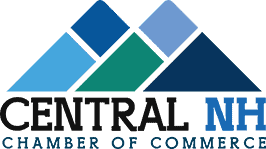Understanding Standard Visiting Policies in Treatment Centers
Most residential treatment centers maintain carefully structured visiting policies that balance the therapeutic needs of individuals with the important role of family support during recovery. These facilities typically establish specific visiting hours during weekends and designated weekdays, ensuring that therapeutic programming remains uninterrupted while fostering meaningful family involvement.
Standard policies often include:
– Predetermined visiting schedules (usually 2-4 hours per session)
– Required visitor registration and screening procedures
– Designated meeting areas within the facility
– Guidelines for appropriate interaction
Treatment centers recognize that successful recovery often correlates with strong family support systems, leading many facilities to incorporate family therapy sessions and educational workshops into their visiting protocols. Additionally, centers may adjust visiting privileges based on individual progress, treatment phase, and therapeutic recommendations, ensuring that family connections enhance rather than impede the recovery process.
Benefits and Challenges of Family Visits During Recovery
While the integration of family visits into residential treatment programs presents both opportunities and obstacles, research consistently demonstrates their significant role in supporting long-term recovery results. These visits provide essential emotional support and help maintain critical connections during the challenging rehabilitation process.
Family visits enable individuals to practice new communication strategies in a controlled environment, working through relationship dynamics under professional guidance. However, these interactions can also trigger complex emotions or strain delicate recovery progress if not properly managed. Treatment centers must carefully balance the therapeutic benefits of family involvement against potential complications.
Key benefits include:
– Strengthened support systems
– Enhanced motivation for recovery
– Improved family understanding of treatment goals
– Practice of healthy boundary-setting
– Development of post-treatment support frameworks
The success of family visits often depends on clear expectations, therapeutic preparation, and ongoing professional oversight. Residential inpatient treatment provides a structured environment where families can rebuild trust and understanding through supervised interactions.
Making the Most of Family Time Within Treatment Guidelines
To maximize the therapeutic value of family visits during residential treatment, facilities establish extensive guidelines that create structure while fostering meaningful connections between individuals receiving care and their loved ones.
Treatment centers encourage family engagement through structured activities that align with therapeutic goals, such as group counseling sessions, educational workshops, and guided communication exercises. Families can participate in meaningful ways by:
- Following visitation schedules designed to complement treatment phases
- Engaging in family therapy sessions when scheduled
- Supporting recovery goals through positive interactions
- Participating in therapeutic support activities led by clinical staff
- Respecting facility guidelines regarding appropriate topics and behaviors
Maintaining consistent communication with treatment staff helps families understand how to best support their loved one while adhering to program requirements that promote successful recovery results.















